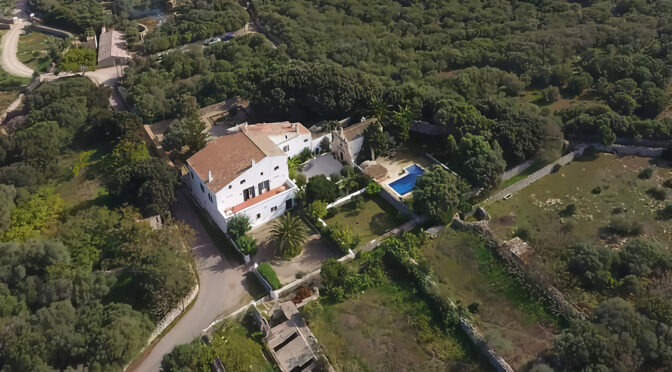Views: 752
A case of illegal and recurrent tourist rental activity on rural land raises doubts about the effectiveness of current penalties for unauthorized activities of this kind.
This example highlights the need to reflect on the issue of excessive tourism pressure in Menorca. It is becoming clear that strengthening inspections alone will not suffice if the penalties imposed are not significant enough to deter offenders.
More rentals mean more tourism congestion
A significant issue during Menorca’s high season stems from the large number of tourists staying in accommodations that are not included in the official tourism capacity.
The problem is particularly concerning in traditional villages and rural areas, where new tourist establishments are no longer authorized, yet where unregulated operations are still abundant.
This unregulated offering represents significant economic activity, operating clandestinely and competing unfairly against authorized establishments that comply with the sector’s regulations, services, and standards.
16 months for a case, followed by immediate recurrence
In August 2023, GOB Menorca reported a case of illegal tourist rental promotion on rural land to the Island Council. That establishment, which was not listed among authorized ones, had a specific promotion online.
Evidence was submitted to the Department of Tourism Regulation, but months passed, and the illegal promotion continued. In December, five months after the initial complaint, the case was reiterated to the Council.
By January 2024, a response confirmed that an investigation had been initiated following the second complaint.
Recently, in November, a statement was received announcing the imposition of a penalty (its amount remains undisclosed). However, just a week later, a new promotion for the same establishment appeared online.
A weak deterrent penalty
Based on this documented case, it seems clear that the penalty imposed—whatever its amount—did not deter the operators.
This case should prompt a review of the policies applied to similar situations. In Palma, for instance, authorities regularly announce million-euro fines to curb illegal tourist rentals.
It is important to recognize that the profits from this kind of undeclared activity can be substantial over the course of a single season. If penalties represent only a small fraction of these earnings, preventive efforts have little impact.
Tourism congestion and rising housing costs
GOB Menorca has long expressed concern over the island’s need to control its accommodation capacity, which determines the peak number of people flooding the island each summer. This lack of limits contributes to the congestion and pressure on natural resources we face.
Unregulated tourist rentals are also a significant factor in the rising cost and limited availability of residential housing. Ineffective policies against this large underground market leave local residents at a disadvantage.
Evolving accommodation policies
In recent years, communities in tourist destinations worldwide have become increasingly aware that excessive tourism harms, rather than benefits, their overall economic well-being.
This reality should particularly be of the interest of the business sector. A tourism industry committed to creating shared prosperity must prioritize regulated and controlled accommodations, as its future depends on it.
Some voices within the sector are already publicly expressing this interest. They should also be the first to speak out against the unfair competition posed by unregulated offerings and advocate for exemplary penalties to address the issue effectively.

